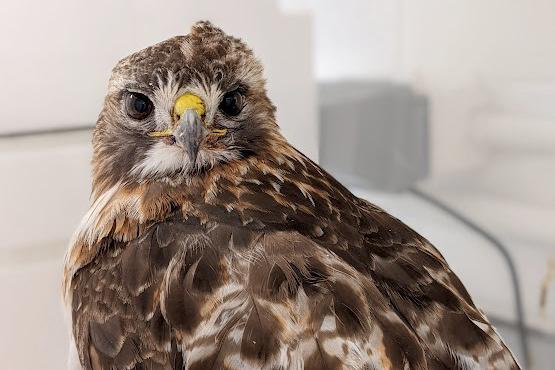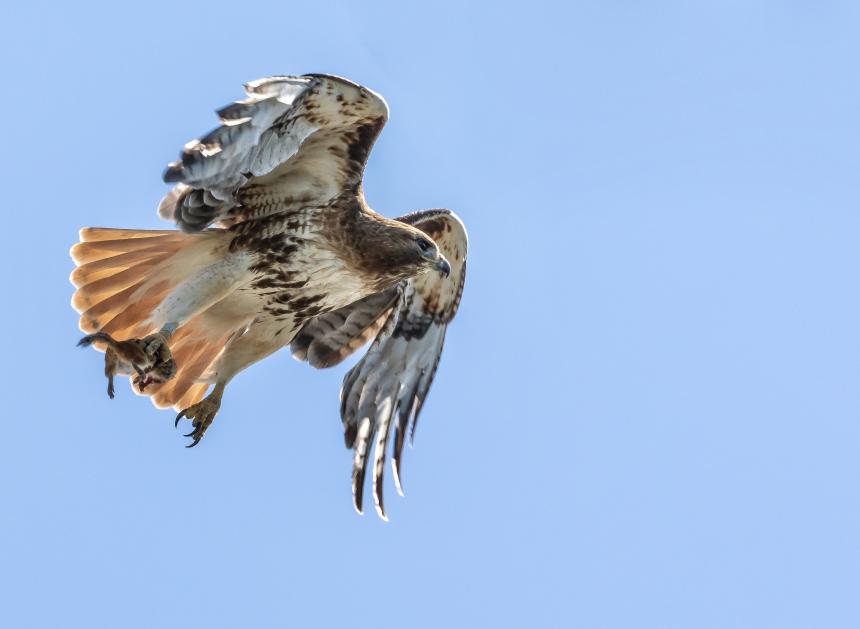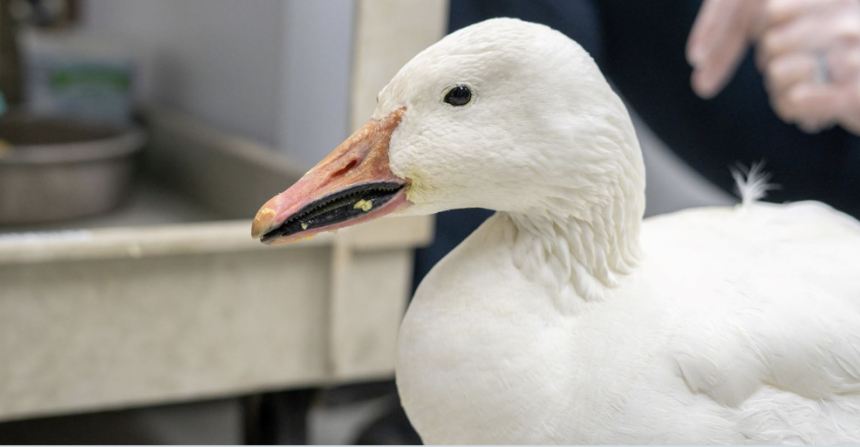In the News

November 30, 2023
Dr. Cynthia Hopf-Dennis from the Janet L. Swanson Wildlife Hospital at Cornell University discusses her path to teaching and practicing wildlife medicine and population health to preserve the health and well-being of our native wild animals while educating others about their value.

July 12, 2022
Birds of prey are in trouble, according to a recent study by Cornell researchers. Rodenticides are bad news for wildlife; poisoned rodents may not die immediately and are more likely to be eaten by raptors like red-tailed hawks, passing on the poison to them.

June 27, 2022
West Nile virus may no longer be a death sentence to crows. In a new study from the College of Veterinary Medicine, wildlife experts describe successfully treating and releasing five American crows infected with the deadly disease, These are the first known crows to survive West Nile virus.

For Your Information
June 17, 2022
Anticoagulant rodenticides continue to be used across the U.S. as a method for controlling pest rodent species. As a consequence, wild birds of prey are exposed to these toxicants by eating poisoned prey items.

June 10, 2022
Each spring, large flocks of snow geese make their annual trek from the south back up to their Arctic breeding grounds. One goose’s journey was interrupted, however, by an increasingly common threat to wildlife — lead toxicity.
Video
June 10, 2022
This female snow goose came to the Janet L. Swanson Wildlife Hospital for lead toxicity. She couldn’t keep up with her flock on its migration north because she was too sick to fly. The Cornell team nursed her back to health and she was released back into the wild.

Video
May 17, 2022
An eastern phoebe songbird was found in a glue trap meant to capture insects and was taken to Cornell’s Janet L. Swanson Wildlife Hospital for treatment.

May 16, 2022
Found in a glue trap meant to capture insects, an eastern phoebe songbird was taken to Cornell’s Janet L. Swanson Wildlife Hospital after its rescuers attempted to free the creature from the powerful adhesive.

Video
May 11, 2022
A tiny red fox kit was recently treated for a swollen paw at Cornell's Janet L. Swanson Wildlife Hospital. The fox is expected to make a full recovery.

May 10, 2022
A tiny red fox kit is getting world-class care at Cornell University’s Janet L. Swanson Wildlife Hospital. The four-to-six-week old baby was found with her paw caught in a plastic rat trap and Cornell’s wildlife health team is helping to heal the fox’s swollen paw and get the baby back to full health.
